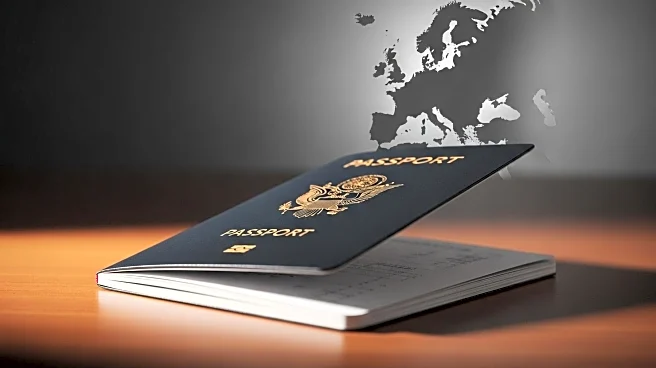What is the story about?
What's Happening?
The Labour Party in the UK is proposing an 'ambitious' youth mobility scheme with the European Union, according to Chancellor Rachel Reeves. The plan aims to allow thousands of young Europeans to temporarily live and work in the UK, and vice versa. Reeves emphasized the scheme's potential benefits for the economy, growth, and business, though specific eligibility criteria were not detailed. The proposal is part of broader efforts to improve trade relationships with the EU and comes ahead of Labour's annual party conference and the upcoming budget. Reeves also addressed economic challenges, ruling out a wealth tax and responding to alternative economic proposals from other party members.
Why It's Important?
The proposed youth mobility scheme is significant as it represents a potential shift in the UK's post-Brexit relationship with the EU, particularly in terms of labor mobility and economic collaboration. By facilitating the exchange of young workers, the scheme could help address labor shortages and enhance cultural and economic ties between the UK and EU member states. The proposal also reflects Labour's strategic positioning on economic policy, as it seeks to balance growth initiatives with fiscal responsibility. The scheme's success could influence public opinion and political dynamics in the UK, especially among younger voters and businesses seeking closer EU ties.
What's Next?
The Labour Party's proposal will likely be a key topic at its upcoming conference, where party members will debate its merits and potential impact. The scheme's implementation would require negotiations with the EU, and its success depends on securing mutual agreements. The proposal may face scrutiny from political opponents and stakeholders concerned about immigration and labor market impacts. As the UK government prepares for the November budget, the scheme's economic implications will be evaluated alongside other fiscal measures. The outcome could shape Labour's electoral prospects and its approach to EU relations.
















